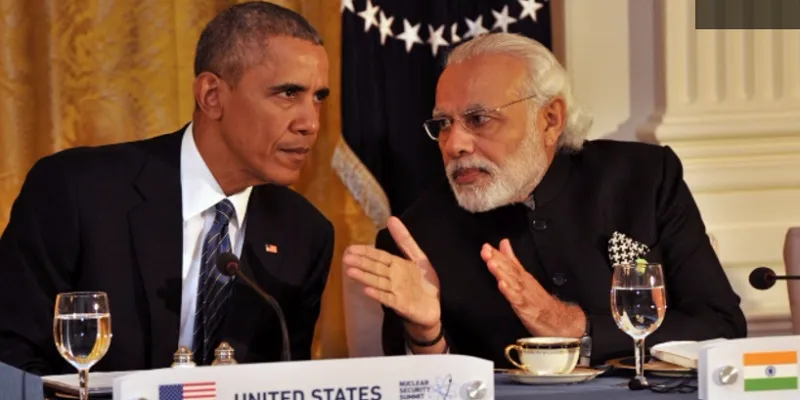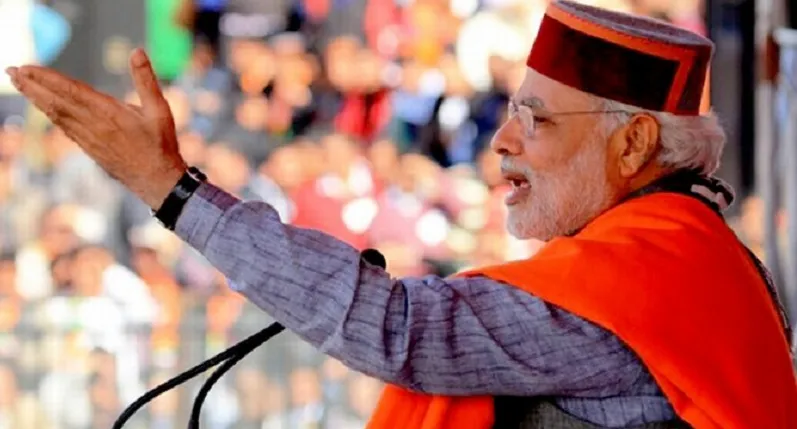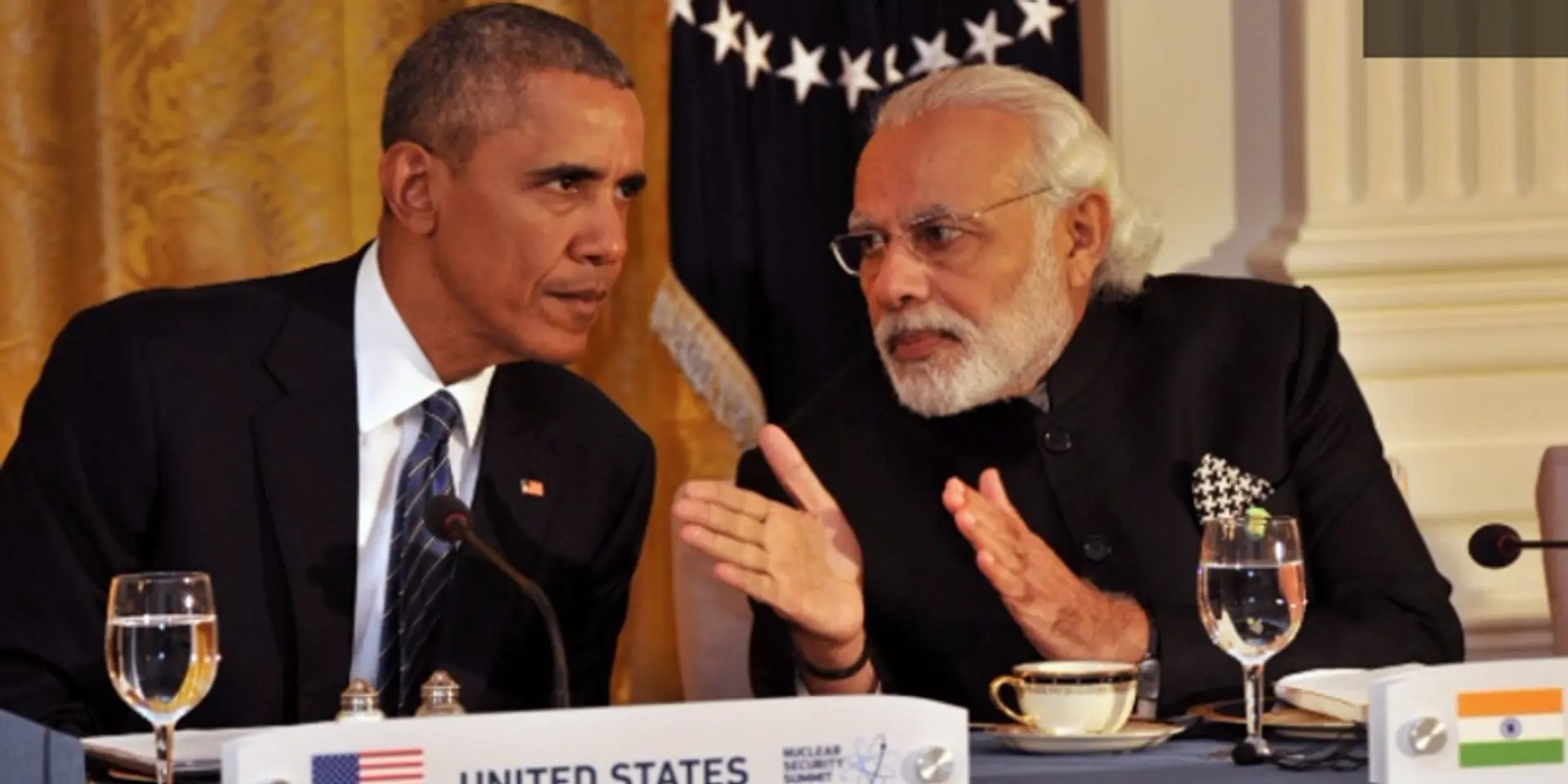How PM Narendra Modi’s speech changed my life
It was impossible to miss it. The PM’s speech at the US Congress was exploding every social media platform. Everyone, including his naysayers, was cheering loudly for him.

I also joined the burgeoning list of slack-jawed admirers, when I tuned in. The words in his speech, while impressive, were not what created the knot in my throat. It was the language he chose. Our eloquent Hindi-speaking PM was speaking in flawless English.
Sure, he didn’t have the alarming ease with which he mesmerized audiences in Hindi. He was acutely aware of every phrase he uttered. But he was marvelous. And the world sat up straight, with respect. I felt a deep connect which I now attempt to explain.
Undoubtedly, anyone who speaks English, and has been on social media is aware that demeaning incorrect pronunciations and incorrectly-spelled English words – is a huge past-time of the elite. By elite, I mean those proficient in basic English.
If we evaluate these errors against our own struggles with ‘any’ new language, our hearts will swell with empathy. Because English is indeed a funny one. Most spellings do not match their pronunciations. Those who commit these terrible blunders in English, almost always are those who weren’t blessed to access education in an English medium school. And they are mercilessly torn apart all their lives by those who had the good fortune to.
But this is not about the marginalized. In India, we don’t even spare our own PM in the name of ‘democrazy’. We have media channels carrying news items and posting videos such as: English Of Narendra Modi hahaha… And nobody blocks these links.
We are like this only
However, I would clarify, that I am not weak in English. If anything, it is a strength. Born a Sindhi to English-speaking parents, I’m grateful they conversed with me in the Queen’s language when I began understanding speech. English was cool and we got along well. Of course, I had my nani to chatter away and equip me with a working knowledge of Sindhi and Hindi. But even though she knew English, she unequivocally chose only Sindhi to communicate with all. Thanks to her choices, Sindhi was embedded, slowly but surely, in my DNA.
Indeed, there is so much literature on how easy it is for kids to pick up languages. I was privileged to learn conversational Marathi from the house help and this gave me a huge advantage as a Mumbaikar.
But over the last few years, I have demonstrated the phrase ‘use it or lose it,’ by losing touch with both the languages: Sindhi and Marathi. Not that I cannot speak these languages to save my life, but the spaces between words are longer than desired. Like a driver who changes gear a little late everytime.

But that said, 15 years ago, I left behind all things familiar to marry my love -- a Telugu Brahmin boy. A good marriage by all means, (touchwood) except that I was unable to learn how to speak the ‘language of (my) love!’
I so wanted to learn Telugu to enjoy the incredible Gult movies like Maro Charitra from which Hindi movies like Ek Duuje Ke Liye (ahem, ahem) were remade. And fun ones such as Maya-bazaar where Ghatotkacha takes the female form of Sasireka to pull the leg of one-sided lover Lakshmana Kumara. And binge on the Vivaha Bhojanambhu (bobaataloos and boorulus flying into his mouth) during the wedding of Sasirekha and Abhimanyu.
So fresh out of the train, back from my honeymoon, I stopped at VT station and bought the tiny book, Learn Telugu (through English) in 30 days. I wrote a note on it – “To Suman Chhabria, ’Crack it!’ From Suman Addepalli!”
Next, I spent days cramming the sentences in it. The husband seemed amused and corrected my pronunciations, whenever he was free to notice. But to my horror, the words were blissfully erased from my mind a week later, when I went over the learned pages.
It was tough. Telugu was not similar to the languages I knew.
Even though my dad had given me a heads-up on the day of my wedding by pointing out that many Telugu words end with a ‘u.’ It was funny but true. Many English words plus a ‘u’ could pass off as Telugu words. For example, watch-u, towel-u, ticket-u. But this was muggle Telugu – not the real thing!
So I took the vrath of communicating with the Pati Parmeshwar only in Telugu till I got it! But, it so failed like an unsustainable diet. I managed only monosyllables. I always succumbed to using English to satisfy my need to speak. As a woman, how long could I allow the husband to have the last word?
Pursuit of happiness
I also stalked any Gult acquaintances to converse with me; that must have been odd for them but they tried not to show it). Without someone to teach or converse all through the week, my method of learning was clearly unstructured.
I tried to make it easy for myself. I attached pictures to sounds. I spent time with a Telugu aunt who was born and brought up in Maharashtra and happened to live in my building. She shared how having lived in Maharashtra before marriage, she did a crash course in Telugu under duress, just before her wedding. The course involved watching and discussing two Gult movies every weekend with her in-laws to be. She shared that her crash course didn’t get her perfect Telugu accent but she had won the battle I was having with the language.
She shared that she was particularly nervous when her refined relatives spoke flawlessly around her. She also warned me that people were classified district wise on the basis of how clean their diction was. In that sense, I felt I was back in Pakistan.
Her empathy and generosity towards me helped me realise that those whose mocking I feared, had never succumbed to the struggle of learning a new language.
But demotivation was setting in. Efforts were not yielding commensurate results. I shriveled up like the leaves of a touch-me-not when I made a mistake. In grammar, pronunciation or both. Better not attempted, I felt. Nobody was pressurising me to learn Telugu, except my own cerebellum. ‘Vaddu.’ I could take no more.
Before I knew it, my brilliant, born-mathematician, curd-rice eating babies (*touchwood*) came along in quick succession. Contrary to my hopes, I realised that the only language they would learn would be what I would teach them. As the predominant caregiver, and the only Gult words they heard from me were Bujji (little girl) and Chanda Mama Raave (a Telugu lullaby which I learned to imitate from the original lullaby singer -- my husband.)
My in-laws also spoke to them and me in impeccable English (and in Telugu to each other) when they did arrive to meet the babies. It was nice of them because I was quite uncomfortable when I couldn’t understand what they were saying.
As a parent, I realised that humans understand and learn languages by memorizing. I spent energy articulating and drilling new English words into my babies’ heads, with songs, poems, and play. It required repetition, time, and welcoming of mistakes with laughter.
My children had no ego and they realised their successes and mistakes with my encouraging facial expressions. I realised that a child took as much time as an adult to learn – except it was easier. This is because a child happily switched between languages, and was not scoffed at for making mistakes. But while I became familiar with a few more Telugu words, spoken Telugu was nowhere on my horizon.
It pinched more during the ‘in-law’ get-togethers. I felt like the proverbial frog in my well of limited vocabulary. I resorted to the manners of the weak. I blamed the husband who wouldn’t take the effort to teach me. The backward integration that I expected to happen when the kids were born (I hoped they would pick it up and teach me) didn’t happen. They joined me in my well and we remained silent.
Yoda words: "When you look at the dark side, careful you must be ... for the dark side looks back," manifested in my life.
I felt crippled with my demotivation, and began to switch off when I heard anyone speaking Telugu. I walked away, comfortable in darkness. I mocked Telugu words which had other meanings in languages I knew. Maybe, it was impossible to learn a new language at this age. It was the end of a dream. I gave up.

But then, ‘Acche din aa gaye.’
Listening to Modi hold his own in the US Congress, melted the ice in my heart. It was not easy for him. Amidst all the criticism he normally receives, he must have needed superpowers to speak in English. He made himself vulnerable amidst an international audience with many people just waiting to tear him apart. And came out a winner.
As audience to his magnificent struggle, a bit of the glitter rubbed off on me. I indirectly learned so many things: In the midst of a demanding public life, our PM Narendra Modi found the time to work heavily on his weaknesses. He taught me how to embrace his mistakes (his speech was not exactly a perfectly pronounced King’s speech), but that did not take away from how splendid it was.
He displayed how a genuine effort at learning, great eye contact, a confident body language, stressing on the right phrases, could become tools to conquer the most formidable world of words.
He publicly declared a war on hesitation by not requesting for a translator at an international domain. I decided then to emulate him by announcing on the internet, that I will not rest until I learn Telugu. No more hesitation, no more fear, and a SMART (specific, measurable, achievable, realistic, time-bound) goal to pursue.
It has been a few months, since. Of course, I may not understand everything that is spoken around me by native speakers. I may fail on several occasions and even witness someone snigger. But the shame is gone. It has been overpowered by the glory which is certain when one refuses to give up.
As a result, I feel positive and energised. I began to stick around incorrigible optimists like my mother to keep myself on track. To her delight, I asked her to speak to me in Sindhi to help me brush it up. I have also been tickling my maid by using phrases such as “mala vhait vat-te” – when she asks for too much leave. I have started letting go of my obsession with Robert Downey Jr. and Sheldon to watch DVDs of movies such as Katyaal Kaljaat Ghusli and recently Sairat. I’m playing Sindhi, Marathi and hell yeah! Telugu songs on my phone when possible. I’m polishing the real gems I have in my head, and they are bound to sparkle when the lights come on.
Thankfully, I won’t be speaking at the US Congress in front of a world waiting for a goof up, the first time I try. But the next time my father-in-law calls (he ain’t no less than the US Congress for me) – I am going to answer in a way that will make him uncomfortable. Uncomfortably happy.
Finally, instead of the grand Walt Whitman quote used by Narendra Modi to conclude his speech, I lean on Leo Burnett:
"When you reach for the stars you may not quite get one, but you won't come up with a handful of mud either."
Relentless perseverance is a bigger success than being perfect. Thank you, Mr Speaker, for the infectious audacity. Thank you very much.
(Disclaimer: The views and opinions expressed in this article are those of the author and do not necessarily reflect the views of YourStory.)



